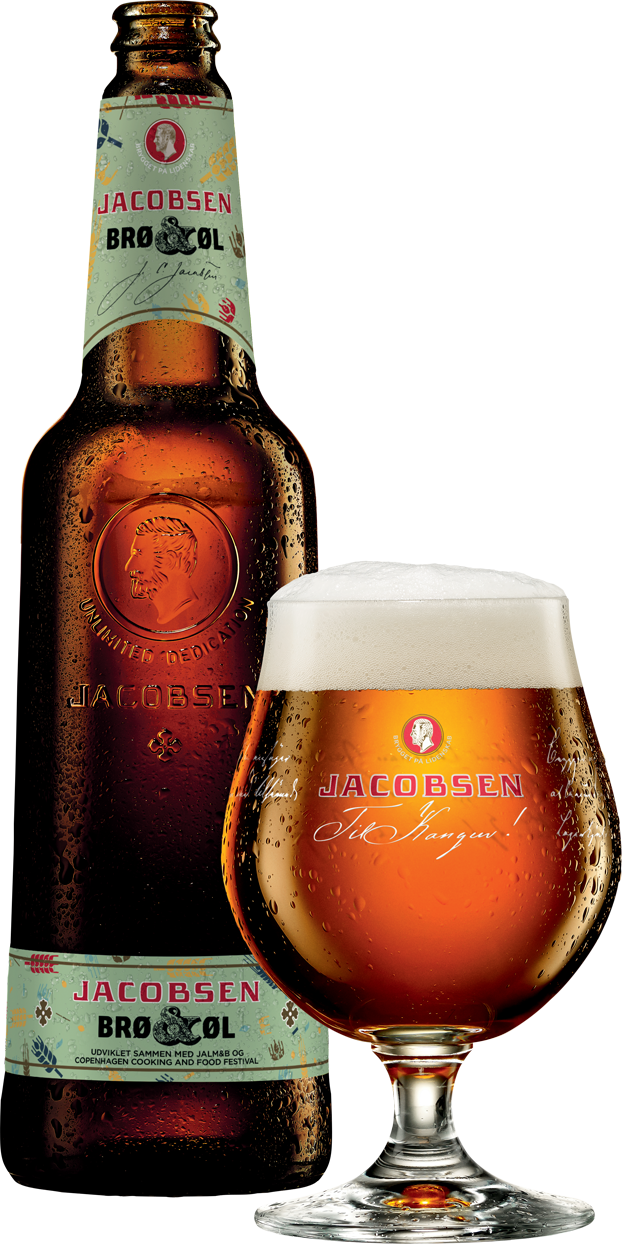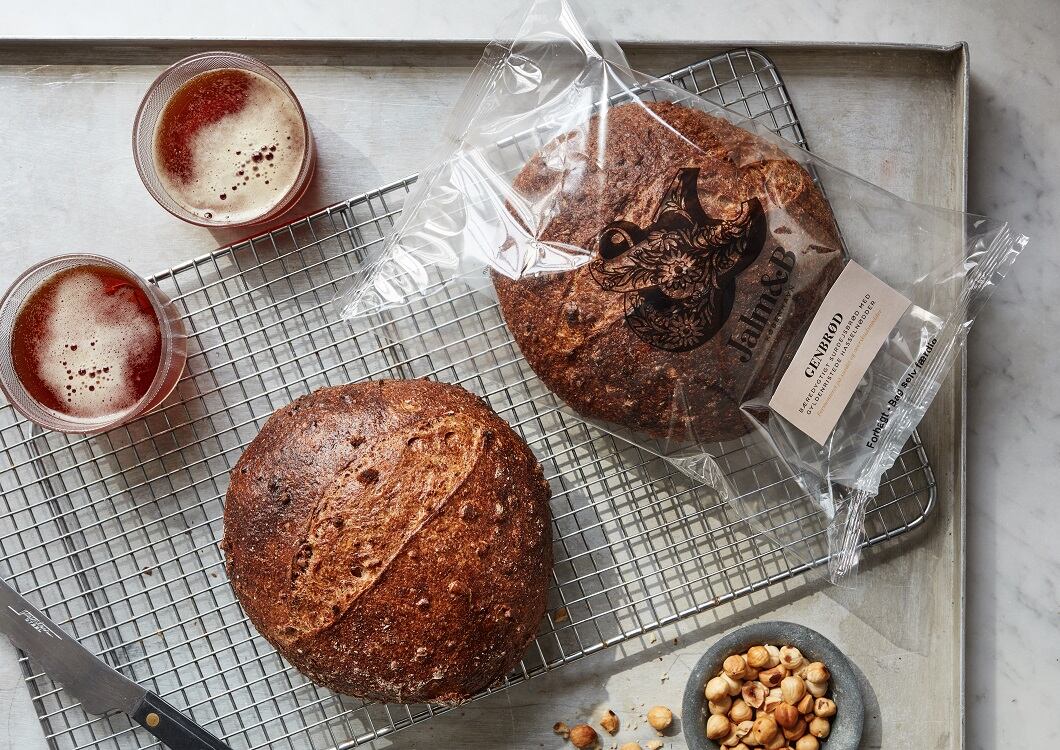‘Genbrød’ is the amalgamation of two Danish words: recycling (genbrug) and bread (brød).
It is also the name given to a sourdough loaf made and sold by Danish organic bakery Jalm&B. The product is baked with upcycled hazelnuts from Carlsberg’s Jacobsen Brewery in Copenhagen.
The hazelnuts are a by-product of Jacobsen’s 2018 winter brew, ‘A Nutty Ale’. Described as a ‘winter warmer’, the dark ale is made with roasted hazelnuts to impart a ‘delicious caramel sweetness’.
As the hazelnuts are used for flavouring only, Jalm&B saw an opportunity to upcycle these costly products that would otherwise have been wasted. “We asked them if we could use it, because hazelnuts fermenting in beer could only make them taste even better,” Jalm&B's marketing manager and development chief Martin Marko Hansen told FoodNavigator.
Jacobsen willingly gifted the hazelnuts and Jalm&B decided to make a bread out of them. While the beer taste is indistinguishable in the final product, the hazelnuts do add complexity to the bread, Marko Hansen explained, citing ‘hoppiness’ and slight bitterness as being present in the finished product.
“It is all about contrasting flavours. It has saltiness; sourness from the sourdough; bitterness [from the fermentation process]; and a bit of sweetness from the hazelnuts. When it has been baked it also has an umami taste to it.”
A collaborative platform
Genbrød is not the first product to have resulted from a Jacobsen-Jalm&B collaboration. At last year’s Copenhagen Cooking & Food Festival, the two companies worked together to produce the official festival beer: Brøøl.
The Saison-style beer is brewed using surplus bread from Jalm&B’s bakery to draw consumers’ attention to the food waste crisis.
“That was the start of our collaboration. But we didn’t want it to be just for the event – we wanted to continue [working together],” Marko Hansen explained. “We could see were using similar ingredients: brewers use grains, water, and a bit of yeast, and that is pretty much what we use in our bakery. We could see similar touch points.”

Both parties are looking to reduce food waste in a more creative and open-minded way, the marketing chief continued. “And they are more sustainable products, because they are sellable as well.”
Genbrød has been available via online supermarket Nemlig.com. Jalm&B’s other products are sold to both B2B and B2C markets via restaurants, hotels, canteens, and in Danish supermarkets across the country.
Food waste: ‘All food producing companies should feel responsible’
At the heart of the collaboration is the collective ambition to combat food waste. Roughly one-third of the food produced for human consumption is lost or wasted each year, equating to approximately 1.3bn tonnes. At the same time, food poverty rates are on the rise.
Genbrød’s manufacturing process, and its deliberately round shape, represent the collaborators’ ‘circular thinking’, Marko Hansen told this publication.
“All food producing companies should feel responsible,” he commented of the food waste agenda. From time-to-time, Jalm&B overproduces bread, or bakes unsellable products, he continued. “They might ferment too long or be off-flavoured. It is still the same good ingredients, and has still been made by craftsmen in the bakery, but it is not sellable as the product we wanted it to be.”
Surplus bread is also an issue in supermarkets. In the UK, surplus bread is one of the biggest waste problems facing food retailers. Food waste action charity WRAP estimates that surplus bakery products, including freshly baked lines, account for close to one-third – or 67,000 tonnes – of the UK’s total retail food waste in 2015.
However, these items can be reused. “It is possible to reuse things when you work with them in a more creative way, just like we did with the hazelnuts,” Marko Hansen explained.
“We are working in an open source way to inspire other companies. After we did this collaboration, a lot of other companies – including bakeries, dairy producers, and juice producers – [started] working out how to use their [leftover products].” The key is “trying to create an even more tasteful product”.


